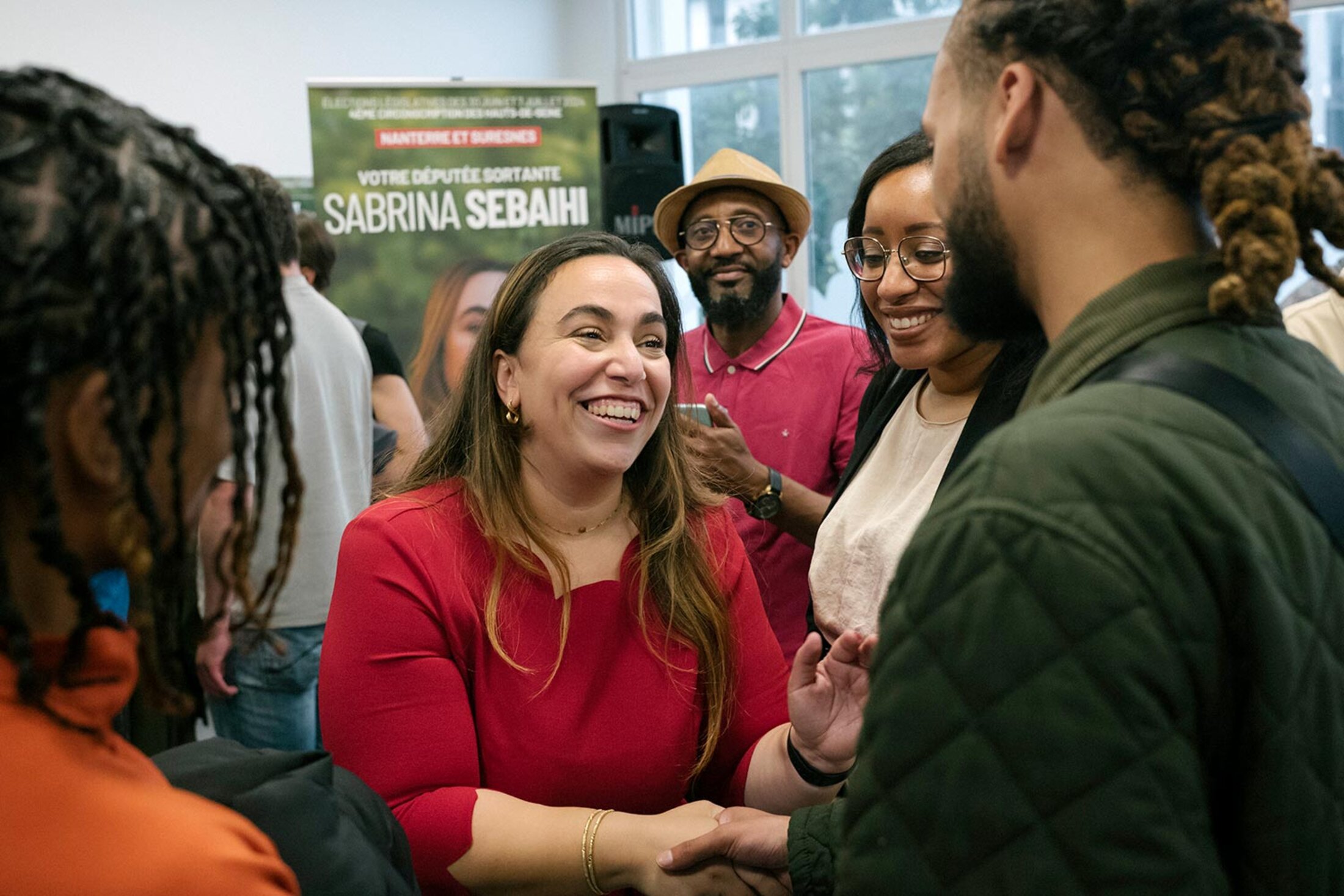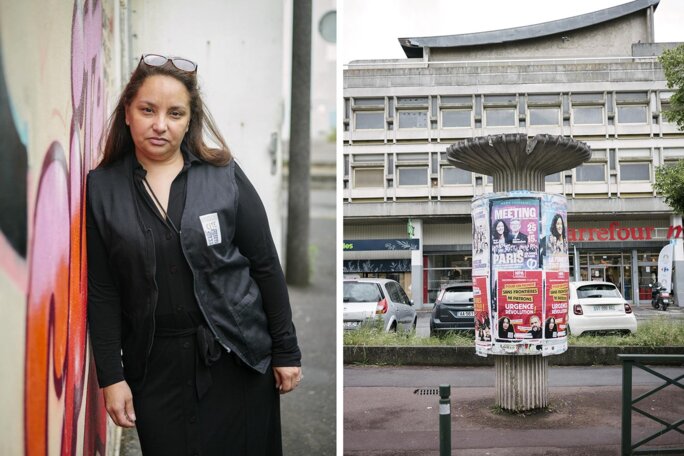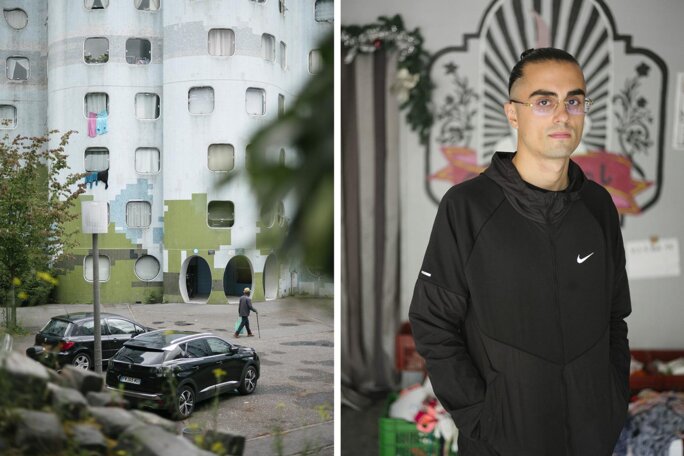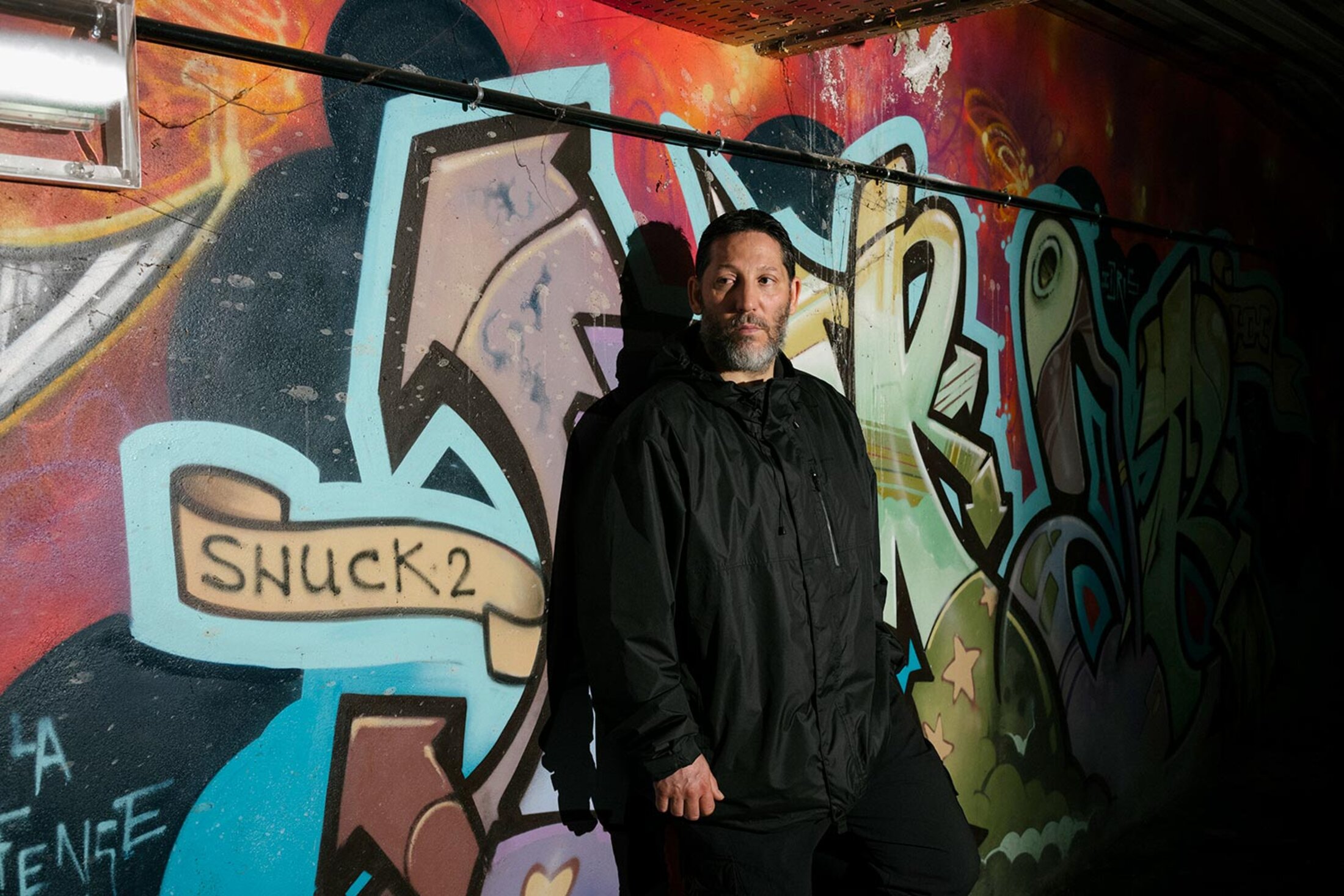It is a full house at the La Traverse social centre, and the atmosphere is electric. Sabrina Sebaihi is officially launching her election campaign for the leftwing alliance, the New Front Populaire, and all the key figures of the Left from the western Paris suburb of Nanterre are here on June 18th to support the re-election of the outgoing green Member of Parliament. In his opening remarks at this evening event the town's communist mayor Raphaël Adam sees the snap election as a “unique” opportunity to show President Emmanuel Macron that he has failed in his gamble of dissolving the National Assembly. “So let's get to work!” he declares. The local CGT representative then takes to the microphone to celebrate some “great and wonderful news”: her trade union has just officially called on people to vote for the New Front Populaire and says it will put “all its effort” behind getting it elected.
Akli Mellouli, a member of the French Senate from the Paris region, has also come to praise Sabrina Sebaihi, a former cashier whose parents were Algerian immigrants, describing her as a “daughter” of working class districts, as a “humble” person who “doesn't forget where she comes from” and who was set to do even better than in the Parliamentary elections of 2022 by winning “in the first round” of this two-round election on June 30th and July 7th. “It would send out a tremendous signal against racism, this is our home!” exclaims Akli Mellouli, to enthusiastic applause.

Enlargement : Illustration 1

But you only have to step away from the bustling main street near the university and the prefecture, an urban area undergoing transformation, and the mood is immediately much flatter. “The campaign's not an issue here,” says Loubna Benazzi, director of the Authenti-Cité association, situated in the heart of the Pablo-Picasso estate. The estate's 'cloud towers', which rise against the backdrop of the shining buildings of the nearby La Défense business district, form part of Nanterre's architectural and social heritage with their cladding made of frescoes representing clouds. These iconic structures were once again back in the public eye during the urban unrest that took place a year ago after a police officer shot dead 17-year-old local resident Nahel.
“Young people tell us they're not interested,” explains Loubna, although this community figure says she works “night and day” urging them to go and vote, especially since the recent European elections in which the far-right Rassemblement National (RN) party was the clear winner. The sudden spike in tension last year has not changed anything.
“The neighbourhood has been relatively calm since, but the daily problems remain and are getting worse,” Loubna says as she waits for food cartons for their outreach work on the streets, one of the many activities carried out by this multifaceted association. “People wonder how they'll manage to feed their families each night, we help more than three thousand people a year to get access to what they're entitled to, it never stops, there's no longer a single social worker in the département [editor's note, similar to a county] to answer their questions. For the people here, that's their priority.”

Enlargement : Illustration 2

Adia, a volunteer and the association's general secretary, speaks of a “loss of trust”. She explains: “I used to vote, then I stopped for ten years, and I only started again to set an example for my boys.” One of her twin sons has acquired the habit. The other she will have to “drag by his ears” to get to the voting booth on June 30th.
After getting a technical qualification known as a Brevet de Technicien Supérieur or BTS, neither of her twin boys was able to secure a place on a university course in the Paris region. They have now been out of education for a year “with nothing to do” and have become a “bit discouraged” their mother confesses. This is ironic as the town is home to the renowned Nanterre University, which teaches 35,000 students a year across four sites. “There are so many young people on the estate in this situation,” confirms Loubna. “Parcoursup has ruined everything,” she adds, referring to the new system that manages university applications which some critics see as elitist and hampering students from poorer backgrounds.
At the entrance to the community centre, four students from the nearby high school have arrived for their year 11 (tenth grade in the US system) two-week work placements. This stems from a hastily-adopted government measure that followed the unrest of June 2023. The aim is to “retrieve the lost month of June” - when schools are busy with the baccalauréat exams for older students – and to “keep young people busy and connected to employment”, in the words of prime minister Gabriel Attal when he was still education minister. “We got them at the last minute because they couldn’t find internships,” Loubna says of the quartet of students. “Where do you expect them to go without connections?” she shrugs.
A climate of racism and Islamophobia
Élie Tarterat, a doctoral student in political science and volunteer at Authenti-Cité, but primarily a youth camp leader in Nanterre for ten years, joins the conversation and gently mocks the “media framing” as he puts it. Nahel’s death, says the young man, was primarily a “local, private event”, yet another instance of police violence for residents who have seen it all before. “They said later that youths from the estates should make themselves of use to elected officials in order to have influence. But these youths know full well that they're often seen merely as a voting bloc, one that is deployed in one direction or another in order to win,” he says.

Enlargement : Illustration 3

The fear of a victory by the far-right Rassemblement National (RN) in the approaching election counts for little here, and that is despite the obvious threat it poses. Loubna well remembers how subsidies for human rights organisations were removed when a far-right mayor came to power in Mantes-la-Ville, a town just to the west of Nanterre, in 2015. In such circumstances what would become of this community stronghold in the Pablo estate, where Nanterre residents originally from abroad, who are already often battling with bureaucracy over re-entry visas for minors, residence permits, and pension entitlements, come and go all day?
Élie Tarterat is also bracing himself to “take a hit”. He says: “I study social sciences about working-class neighbourhoods by day and do stand-up at night. In both cases, I'll be told to 'get lost'.”
If the RN are elected those police who are itching for a scrap will be off the leash, and we'll have a terrible summer.
The “racist and Islamophobic” climate also weighs heavily. Loubna realises she always introduces herself at first as “a Picard” - someone from the Picardy region of France where she lived for twenty-five years - because “that's not what people initially think when they see me...” Meanwhile Adia advises her children “never” to give their address as the Pablo-Picasso estate when looking for education or work. She recalls the humiliation she felt in front of the head of a crèche when the latter found out where her family lived. “She offered to take only one of my children, a way of saying no. I was alone with my babies and have never worked since,” Adia says.

Enlargement : Illustration 4

On the gable of the building where Authenti-Cité is based a photographic mural commemorates Nahel and the events of June 2023. Seated on a bench, Djamel Attalah is involved in a heated argument with Saïd, who does not have French nationality and thus cannot vote. Saïd grumbles: “We’re making too much of this story, what difference will it make? It’s not me who put the FN [editor's note, the Front National, Rassemblement National's previous name] in power, it’s the Left, it’s [former socialist president François] Mitterrand who propelled them!” Djamel Attalah is unmoved. “The first to be attacked if the RN comes to power will be the residents of local neighbourhoods,” he insists, referring to the many places in France's suburbs with populations from immigrant backgrounds.
While surprised and pleased at the rapid unification of the Left under the umbrella of the New Popular Front, Djamel Attalah looks on with pessimism at what he sees as a deeply-rooted “rejection of Arabs and Muslims” that has been “cultivated and maintained by snipers in the media”. He asks Mediapart: “Because of my appearance, I'm called Franco-Muslim. Are you called Franco-Christian?”
Having taken part in the 1983 “March for Equality and against Racism” from the very start – he set off with fellow marchers from the Minguettes estate in Vénissieux, Lyon, en route to the capital - he has now settled at “Pablo” in Nanterre. As he walks along the avenue, where a year ago cars were being torched one by one, Djamel Attalah regrets the fact that his side, the Left, failed to grasp the magnitude of the threat sooner. “If the RN are elected those police who are itching for a scrap will be off the leash, and we'll have a terrible summer,” he says.
From gangs to graffiti
Back when young Djamel Attalah was marching across France, filled with hope for the full legal integration of immigrant children into French society, the teenage 'Shuck2' - his graffiti tag - was already spending his life in the grim corridors, vast hallways and dead-ends of La Défense, the business district just a stone's throw from the cloud towers.

Enlargement : Illustration 5

By his own admission a “troublesome and unbearable” student on a vocational boilermaking training programme, this native of Nanterre became involved with the notorious Black Dragons gang, founded by a Haitian immigrant known as Yves Le Vent. Shuck2 found himself “somewhat by chance” hunting down skinheads, “fascists”, in increasingly violent clashes that ended in raw fights to the death, without politics involved. “I then turned to graffiti and hip-hop, as a way of rising positively above that period,” recounts the artist, in the urine-soaked and now CCTV-monitored tunnels of La Défense where his tag and that of his last gang, TCP ('The Cobra Power'), are still very visible.
Now dividing his time between London and Nanterre, Shuck2 was on the streets of his home town during the tense nights that followed Nahel's death to “observe, to calm the young ones down a bit”, and then ended up broadly sharing the widespread anger that engulfed the neighbourhoods. Interviewed back then by Mediapart in the middle of the night he said: “It's instinctive, you know when you're oppressed, even if you can't put it into words. The youngsters aren't stupid. They live it, they know it. As long as there's no justice, there can't be any peace.”
For all these reasons, he reluctantly voted in the European elections, “nagged” by his sister, a municipal councillor, and says he will vote again on June 30th but “without really believing in it”. When people express surprise that he still engages in “vandalism” at the age of 52, tagging highway ramps and cement blocks intertwined under the towers, he defends his persistent urge to “disobey”. He says: “Yes, you've become part of the system, you pay your taxes, but it's one way of saying we don't agree, of crying out.”
-------------------------------------------------------------------
- The French version of this article can be found here.
English version by Michael Streeter


